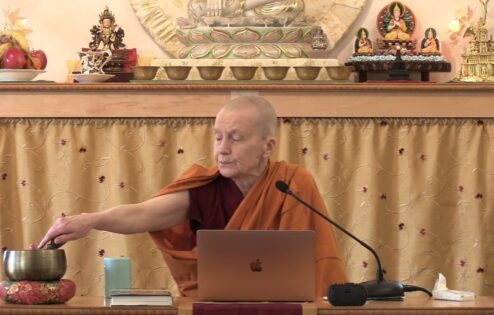emptiness
Teachings on the core of Buddhist philosophy: that persons and phenomena are ultimately empty of inherent existence because they are dependent arisings. This is the most powerful antidote that eliminates the ignorance and afflictions that give rise to suffering.
Latest Posts
View all posts in Venerable Thubten Chodron's teaching archive.
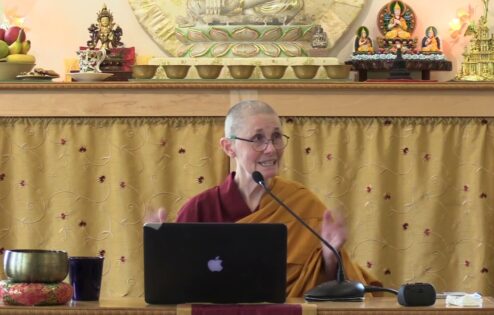
A personal study of grief and some antidotes
Learning from personal grief and antidotes for working with grief from a Buddhist perspective.
View Post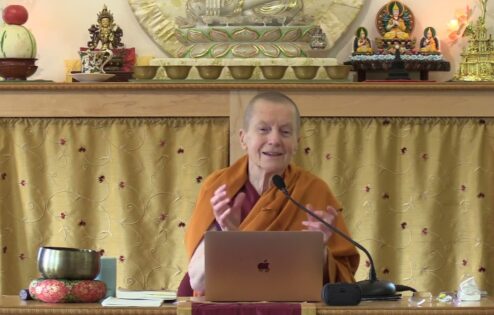
Emptiness, karma, and the stages of grief
The relationship between emptiness and karma. Exploring Western views of grief.
View Post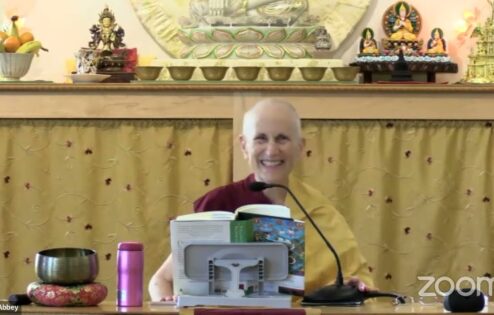
Three Jewels of the Vajra vehicle
Finishing the section of Final and Provisional Refuges, and explaining the Three Jewels According to…
View Post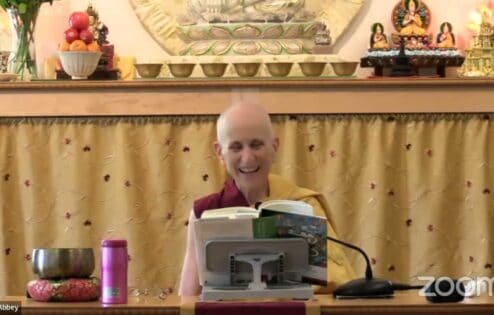
Final and provisional refuges
Describing the difference between the Three Jewels and the objects of refuge, both final and…
View Post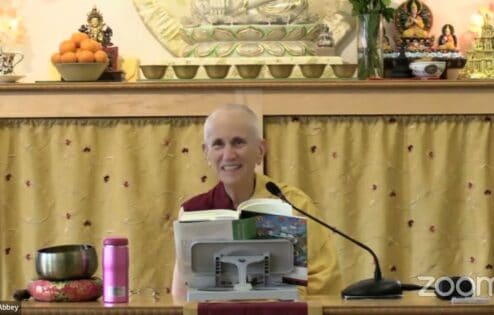
Eight excellent qualities of sangha jewel
Explaining the eight qualities of sangha jewel found in Maitreya’s Sublime Continuum, teaching from Chapter…
View Post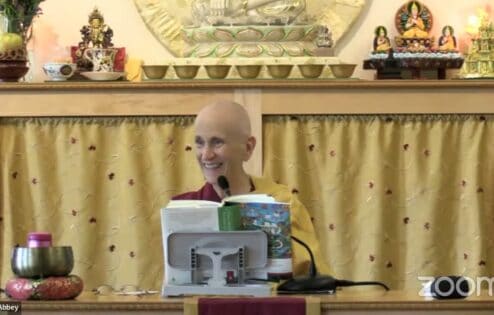
Eight excellent qualities of the dharma jewel
Explaining the eight excellent qualities of the dharma jewel found in Maitreya’s Sublime Continuum, teaching…
View Post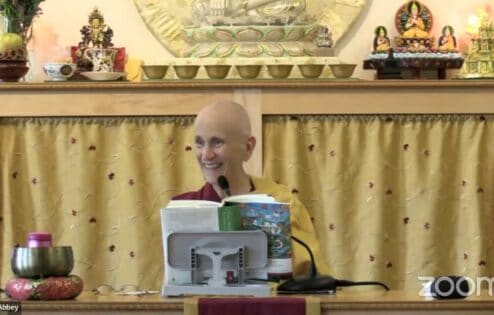
The eight excellent qualities of the dharma jewel
Explaining the context for understanding the eight qualities of the dharma jewel, teaching from Chapter…
View Post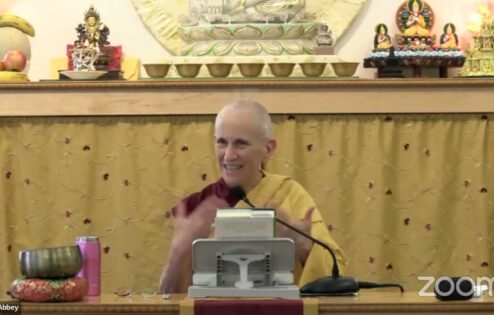
Eight excellent qualities of the buddha jewel
Explaining the eight excellent qualities of the Buddha Jewel found in Maitreya’s Sublime Continuum, teaching…
View Post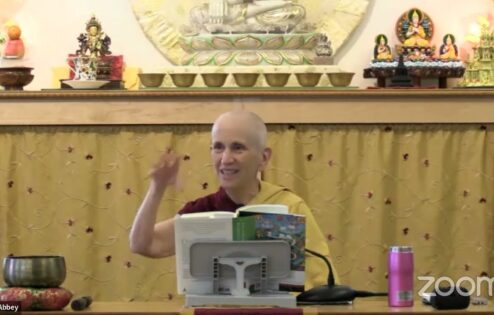
Three jewels according to the perfection vehicle
Describing the qualities of the three jewels based on the perfection vehicle, teaching from Chapter…
View Post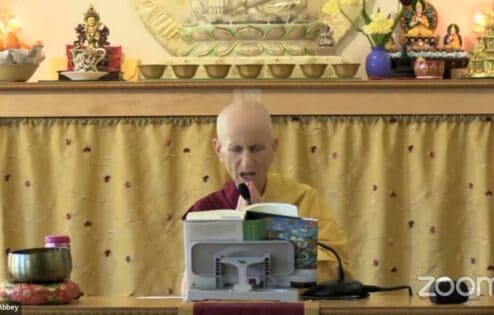
Three jewels according to the fundamental vehicle
Describing the qualities of the three jewels, giving commentary on the Jewel Sutra and explaining…
View Post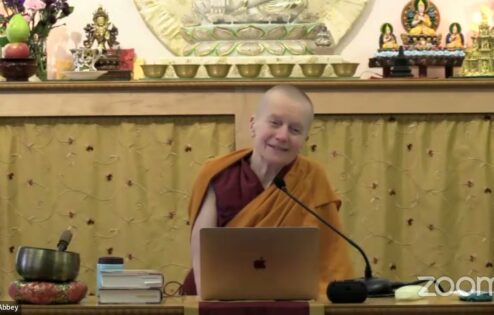
Excellent qualities of the dharma and sangha
Explaining the qualities of the dharma jewel and sangha jewel and the precepts to follow…
View Post